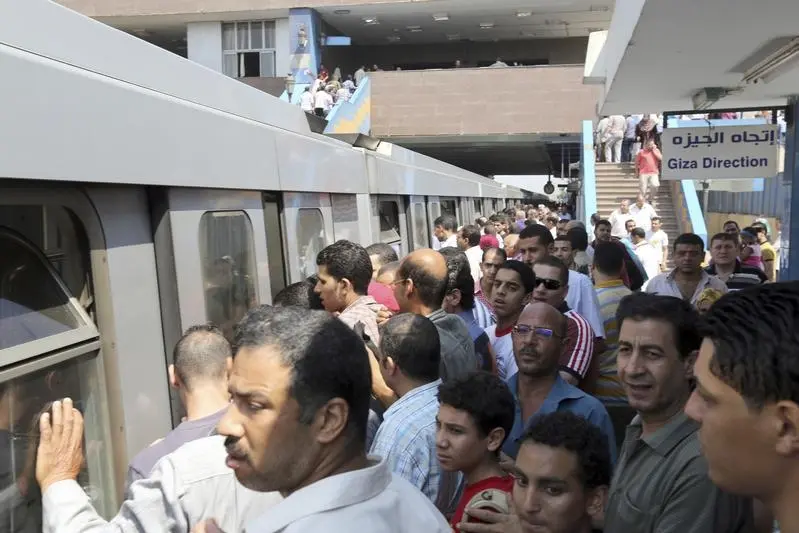PHOTO
CAIRO: Dozens of Egyptians have protested at Cairo metro stations in a rare display of public discontent as the government tightens spending and pushes austerity measures, according to posts on social media.
The government raised the price of tickets on Cairo's loss-making metro on Friday, more than tripling some fares.
Clashes broke out between protesters and security forces at Maadi station and at least two people were arrested on Saturday, a Reuters witness said.
Some posts showed people demanding the government rescind the decision, with some jumping over ticket barriers, apparently refusing to pay the new fares.
"We will not move, we will not move," a small crowd chanted at Dar el-Salam station in south Cairo as policemen looked on.
Interior Ministry officials could not be reached for comment. It was not possible to verify the authenticity of the recordings.
Even small protests have been rare in Egypt since the army ousted President Mohamed Mursi, an Islamist, in 2013 following protests against his rule.
A law passed in 2013 banned demonstrations not approved by the Interior Ministry, taking away a right earned in the 2011 uprising that toppled long-time autocrat Hosni Mubarak.
The fare rises came as Egypt pushes ahead with tough reforms tied to a $12 billion International Monetary Fund agreement that have included energy subsidy cuts and tax hikes and are aimed at boosting growth.
"The instructions are in the public's interest and they will protect the metro and so we can introduce new stations and develop the service and provide commuters with a humane means of transportation," said Cairo Metro authority's spokesman Ahmed Abdel Hady.
He urged regular commuters to buy monthly passes to save money.
The metro system has accumulated losses of 618 million pounds ($34 million), state news agency MENA reported.
The government angered Cairo residents, already hit by a sharp rise in living costs, when it doubled the price of metro tickets last year for millions of commuters.
Inflation shot up after Egypt devalued its currency in November 2016, reaching a record high in July on the back of energy subsidy cuts.
It gradually eased after July, until last month when core inflation, which strips out volatile items like food, marginally increased.
(Reporting by Ali Abdelaty Writing by Arwa Gaballa; editing by Sami Aboudi and Angus MacSwan) ((arwa.gaballa@thomsonreuters.com; +20 2 2578 3290;))





















